There is a lot of trend and hype around personal finance and I couldn’t be happier. From more female and diverse creators, to de-influencing, there are voices in this space that are talking about a variety of much needed subjects.
But you know what wasn’t cool seven years ago when we first got married? Talking about money.
When I started dating Connor, I knew he wanted to be an accountant. I knew about money terms that had to do with shopping and I knew about dave ramsey and that was about it. My family was upper middle class for a lot of my life and I never had to think about money in a critical way. I will always acknowledge this privilege.
It set me up in a lot of ways.
My parents helped me with tuition and living expenses.
I always had a cell phone, laptop, etc.
I never really wanted for anything.
But it didn’t set me up for knowing exactly what to do with my money or for being married to an accountant who is a very type A enneagram 1.
The first year or so of our marriage was filled with numerous conversations about money and goals and future and almost every single one of them ended up with me in tears. Not because we were in a terrible spot or because Connor was mean, but because I felt so inferior compared to my husband.
Inferior in knowledge, income, and confidence.
It had nothing to do with him and everything to do with my lack of knowledge. So I really started to embrace education and learning about personal finance and I am better for it. I have learned so much and wanted to talk about this because even thought it is talked about more, it still isn’t enough.
Kids needs to learn about money, teens needs to learn, young adults, women, girls, people of color, everyone needs better access to financial literacy.
I am by no means an expert, but I know our story, and want to tell it you.
Our financial story
The foundational years
Childhood:


Connor: grew up lower middle class. His family had some financial issues while he was growing. The details aren’t mine to tell, but they did form him and his decision making in the future. It’s why he became an accountant and why he was adamant about us being out of debt asap.
Me: grew up upper middle class. Family started out with not a lot but gradually grew into steady income and we lived below our means. Both my parents worked and we lived in relatively small home compared to most of my friends.
College:

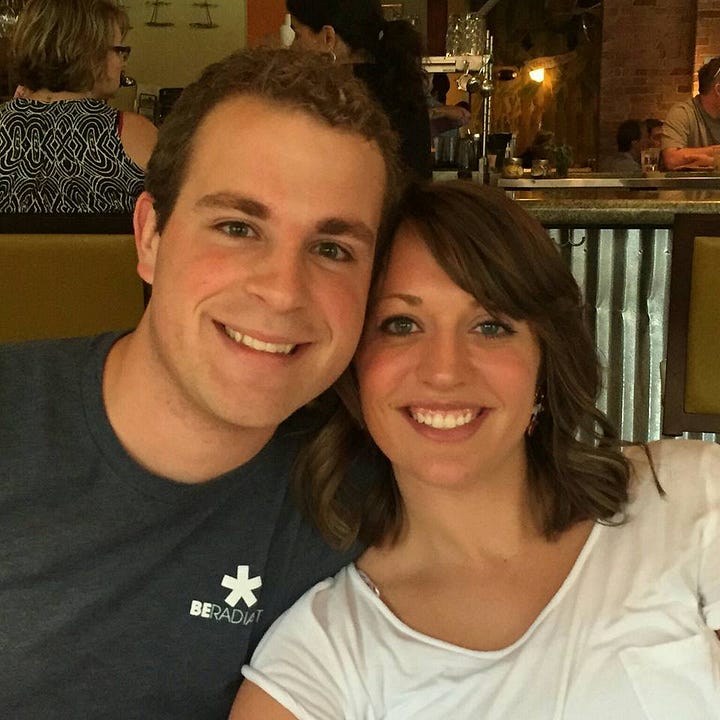
Connor: decided to go community college, was going to transfer to our hometown school, but then I came into the picture and he transferred to where I went. Parents helped with groceries.
Graduated with: 21k in debt, most of it being his car he bought right after graduation (a necessity, his 2003 honda was in terrifying shape)
Me: went straight to four year university, but the cheapest one in our state. Parents helped with tuition and living expenses.
Graduated with: 21k in debt, all tuition
Where our co-story begins
Early marriage:
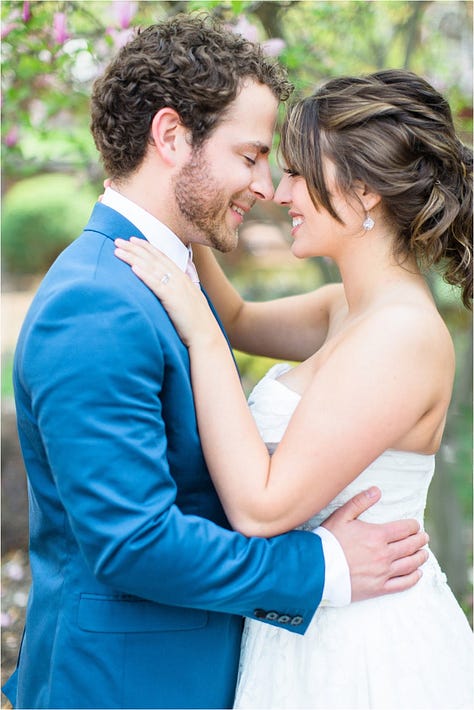
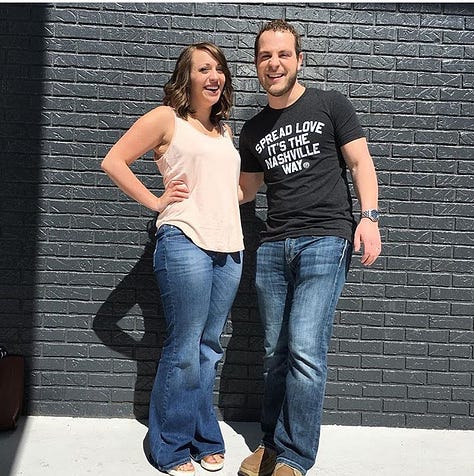
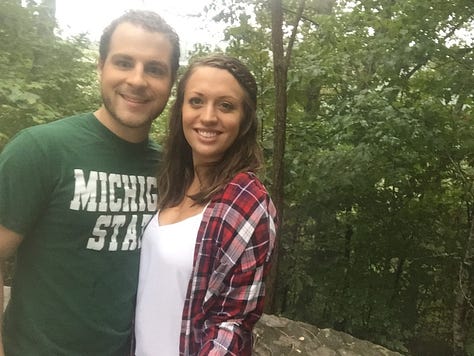
We got married in May 2016, five months after graduating college. He graduated a semester later due to a semester long internship. I graduated a semester early due to CLEP testing and summer classes. During this time, Connor was working part time and studying for the CPA exams, and I was working part time since we were moving from MI to TN in a few months.
TIP .5: be smart about college credits.
I needed 120 to graduate and had 110. Instead of doing a minor like everyone told me to, for 13 credits to hit that number and go into more debt, I took three CLEP tests for $90 each. Connor did the same thing. He graduated with 120something credits, needed 150 to take the CPA. Instead of getting his Masters like most people, he took a bunch of CLEP tests and saved literal thousands.
Not long after we moved to TN, Connor and I made the decision to take Financial Peace from Dave Ramsey. We moved the city he is headquartered in and everyone talked about it growing up. Now, I can’t say I recommend DR as a human, but his class did give me good foundational knowledge and vocabulary for money. It was also nice to meet people who, honestly, were in both better and worse shape than we were. It was motivating and got me on board to start aggressively pay of debt.
Connor was working as a CPA at a public firm aka I didn’t see him from January-April. I was working as a virtual assistant and as a receptionist at a print management firm eventually promoted to project manager. We hated our jobs. He was making decent money, I wasn’t. But we had consistent income.
TIP ONE: track your money
We used the everydollar app religiously. Every. Single. Time. we paid for something, it went in the app. They have a paid version, but the free version forces you to do everything yourself which to me, gives you the illusion of using cash without the inconvenience of the envelope system. This helped me especially see where every dollar of our money was going. Anything that wasn’t spent, went towards debt. This was SUPER MOTIVATING to me. It helped me make decisions, “Well if I don’t go out to lunch today, that’s $12 more dollars that can go to debt.” And if I made that decision four times a week, that’s $48 each month, $576 per year. All of those small decisions added up and still influence my mindset today.
You have to be the one to tell your money where to go. If you don’t, it will be aimless. It will go towards things that don’t help you accomplish your goals. Debt payoff doesn’t happen on accident.
I’m not saying this step is fun or convenient. Honestly, it is a pain in the ass. But a necessary pain.
Here comes some tough love.
There is always going to be a pain.
You can have the pain of still being in debt and not in control. Sure you might have more things, go on more trips, etc. and think you are happier.
or
You can have the pain of knowledge and control. You can have the pain of inconvenience but with the empowerment of knowing exactly where your money is going. This doesn’t mean you have to lack or sacrifice everything. It simply means you KNOW.
This was the biggest lesson for me. I learned I would rather have the latter pain. I will make the sacrifices of tracking money, not spending much on alllllllll the fun things to KNOW that we will be out of debt, be able to travel more freely, make decisions better in the future, and have RETIREMENT money.
TIP TWO: have goals & celebrate when completed
We would attack certain parts of our debt like the debt snowball DR recommends. But we would acknowledge small goals, and celebrate big goals. When a loan was paid off, we would say something. When big goals were hit, we would go out. The fun part was our friend Hillarie was on a similar track so we would celebrate with her.
Debt paid off: Uncle Julio’s with the chocolate pinata (see above)
E-fund funded: Cork & Cow (upscale steakhouse)
We paid off 42k in debt in 20 months. This is due to the leadership of Connor and me getting on board. It was a team effort, and wouldn’t be successful if it wasn’t. We were on the same page every step of the way because of communication and shared goals. During this time we had also both transitions jobs.
Connor: from public CPA to staff accountant at a large healthcare company
Me: from project manager to part time ministry at a large multisite church and part time recruiter.
TIP THREE: know your priorities
Post debt can be a weird time. Do you need to be as strict? Can I buy lunch more often now? or books? It almost felt overwhelming to have so much freedom.
What helped us was continuing on with goals that aligned with our priorities.
We cared about having a nest egg and traveling. So our decisions reflected that. We didn’t balloon our spending. We still tracked everydollar. And now we knew travel could happen. A major reason is the concept of credit card hacking. I’m not going to go into every detail, but you can learn more here. We’ve been able to go to Hawaii, Italy, California, and Florida on free flights due to credit card points. Credit cards aren’t the enemy like DR thinks they are. They take discipline and a mindset that it’s your money, not fake money and they can be incredibly beneficial. If you aren’t disciplined, then go into credit cards cautiously.
Your priorities might look different. Maybe you really value expensive meals, being able to buy the latest skin care products or having a pet. Naming your priorities helps you say yes to the right things and no to the wrong things. Not everything can be yes or and not everything can be no. You have to live. You have to have fun. You don’t have to hoard your money. You money just has to be told what to do, it will lead you if you let it.
Now:
We are almost seven years into marriage. And I can honestly say, I am really proud of where we are at.
We have:
Paid off debt
Saved an emergency fund
Saved a (small) downpayment for our future home
Travelled (and more to come!)
Invest a certain percentage of our income (401k, Roth IRA, stock market, crypto)
I say all of this not to brag, but to show it can be done.
We don’t make large amounts of money, we have a high rent payment. We didn’t have any help from parents post college. We made our lives simple for a season. And that season became the foundation for where we are at now.
We don’t track our money now, but we have a general knowledge of where our money goes each month. We still have goals. We still have lots of conversations.
We are pretty open with people about our financial journey and story. If you have any questions or thoughts- share in the comments! I would love to talk about this with y’all!






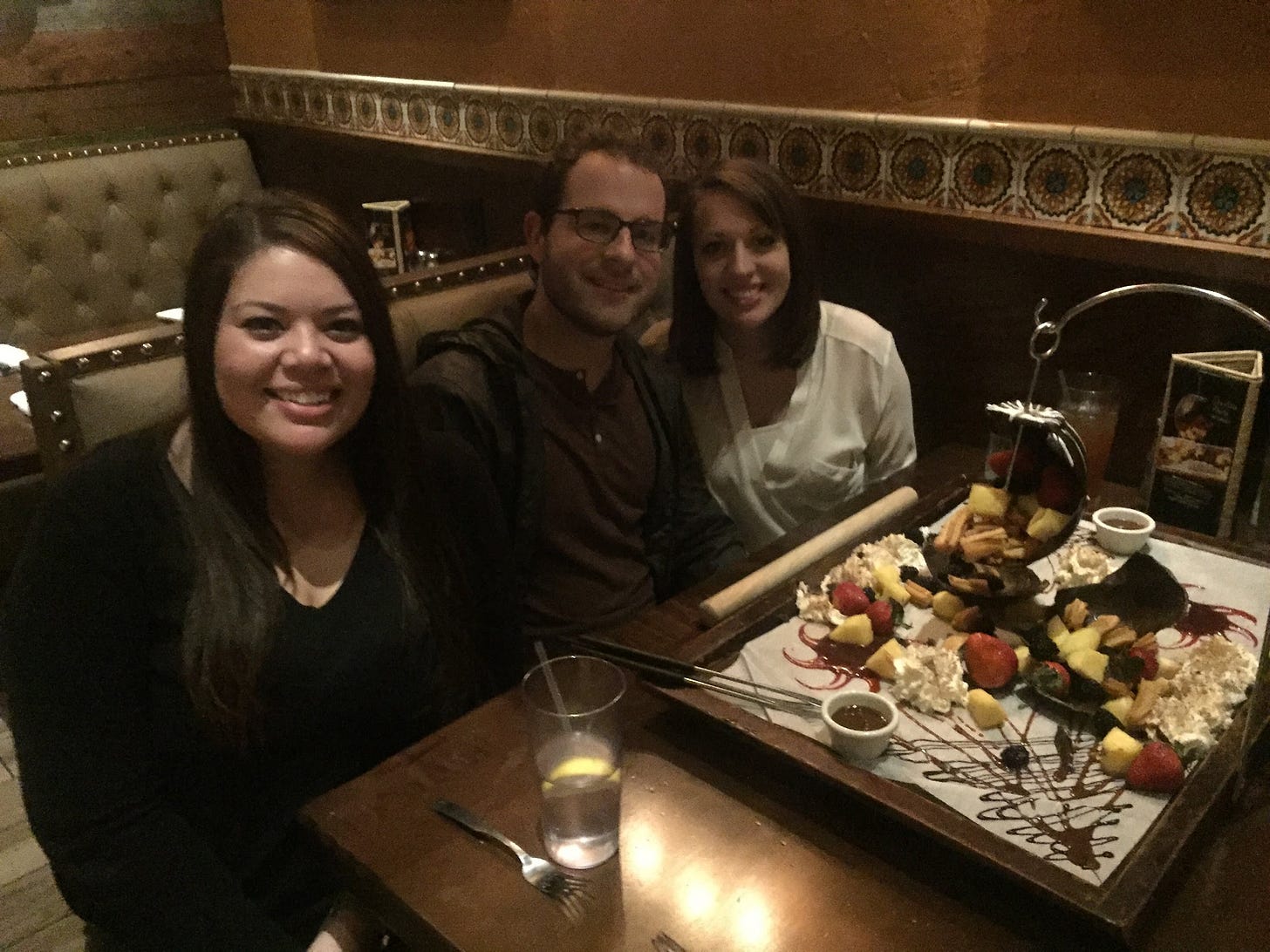
I need to tell my money what to do and be more strict with it. Great post!
proud of you both!!! always inspired by y'all even if i personally still rebel against budgeting...